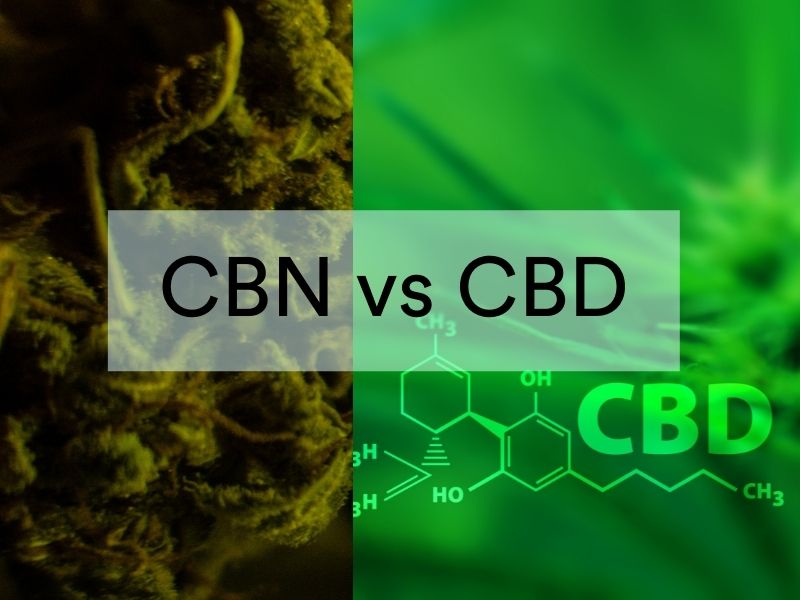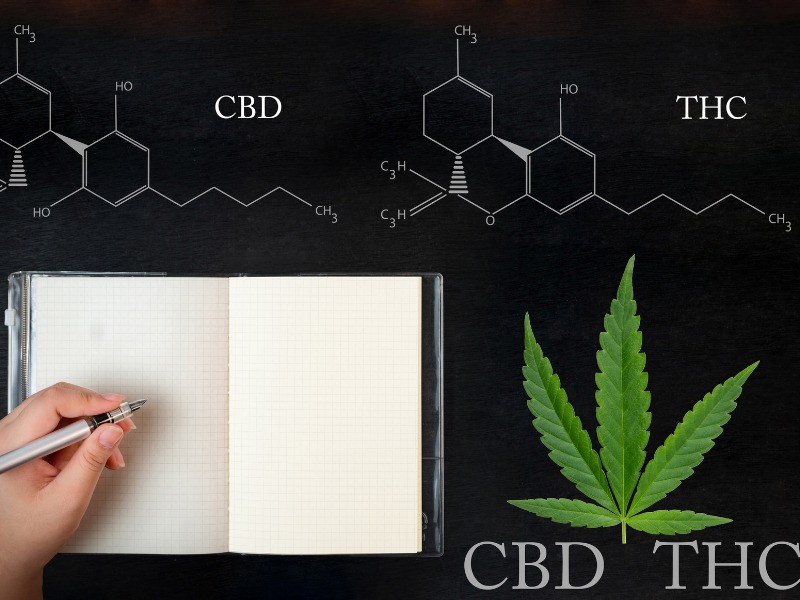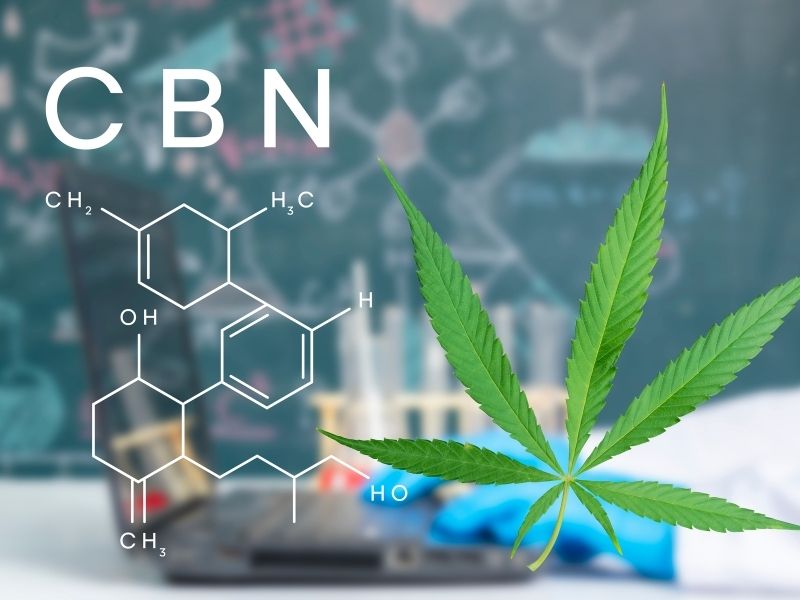
Just like other minor cannabinoids that are grabbing the interests of cannabis enthusiasts as well as the new users, CBN is the latest to join the list. The alleged uses of CBN for insomnia treatment, pain management, etc are spoken about but there isn’t any evidence to support the claims. Cannabinol is a minor cannabinoid that is formed by oxidation of THC and has mildly psychoactive properties. CBN and CBD have major differences concerning the amount present in a cannabis plant, their side effects, legal status, and of course, the amount of research data available for their properties and effects.
Cannabis is an enigmatic medicinal herb full of vital components that act collaboratively to produce profound positive effects. It has been used for its effects on bodily functions to alleviate many physical and psychological stressful events. The abundantly found THC, CBD, and many minor cannabinoids such as CBN are being extensively studied for their potential therapeutic benefits. What is CBN and how is it different from other cannabinoids such as THC & CBD, let’s find out.
Many biologically active elements that make up the chemical structure of cannabis contribute to its characteristic effects on the body. Each of these elements holds bountiful advantages on its own. The majority of people are aware of THC & CBD, and CBN is a fairly new compound. The safety profile of CBD [5] made it a hugely accepted cannabis product in recent years. And with so many unresolved queries about CBN’s effects, it is a new area to explore.
Cannabinoids We Know
THC
THC or tetrahydrocannabinolic is acknowledged for its psychoactive properties and has been under scrutiny for a long time.
- It has been illegal for many years and it’s only recently that people are finding out how valuable it can be when used appropriately.
- It has therapeutic values that can help people suffering from many physical and psychological ailments.
- Sadly, it can result in serious side effects that cannot be side-eyed even with the dainty list of the positive health impacts.
CBD or Cannabidiol
CBD or Cannabidiol, a non-psychoactive cannabinoid, has been highlighted in recent years for its numerous health benefits.
- Cannabidiol is a major cannabinoid that is found abundantly in hemp plants.
- It exhibits no psychotropic effects and is non-addictive, and offers numerous positive effects on your health.[1,2,3,4]
- It is approved as a controlled medicine by the concerned authorities for certain medical conditions such as epilepsy in children.
- CBD delivers the therapeutic benefits of THC and many additional health uplifting effects without any major side effects.
The favorable reception of CBD led to the introduction of an array of products. You will find everything from the humble CBD gummies & CBD tinctures to gourmet CBD edible products such as truffles, chocolate bars, etc. CBD has even found its way into skincare products. CBD Anti-aging oil Serum has gotten great reviews and many similar products are finding their way to the virtual as well as store shelves. You would be surprised at how many products one can find, and every product will be processed differently. Know more by reading our guide – What CBD is Right For Me?
CBN – What Does It Do?
CBN or Cannabinol is formed by the oxidation of THC and also when it gets exposed to high amounts of light and heat.
- It retains a mild degree of psychoactive properties and its therapeutic profile is somewhat similar to CBD.
- It is biologically active and interacts with the Endocannabinoid System of the body, with more affinity towards the CB2 receptors.[10]
- It is considered a minor cannabinoid as it occurs in low amounts naturally, which makes its production an expensive process and increases the cost of the CBN products.
- It is manufactured in the laboratory from the THC extracted from the hemp plants.
Side Effects
The common side effects of CBN are similar to those experienced with the use of CBD.
- Dizziness
- Sleepiness
- Vomiting
- Nausea
- Drowsiness
That being said, it is important to understand the fact that every individual’s physiological system will uniquely process the cannabinoids.
- Some people may experience the side effects with even the smallest doses while others may be okay with low amounts and encounter side effects with large doses.
- Other biological factors such as age, body mass, overall health, etc also play a role in how your body reacts.
- In addition to these factors, any medication taken along with the cannabinoid extract will influence the effects it exerts on your body.
- It is critical to consult a doctor in case you are on any prescription medication or suffer from any health condition before using Cannabis products.
When talking about its potential in medicinal use, the prospects still need to be studied. The results of animal studies hint towards a hopeful future. [6,7,8,9] The claimed CBN benefits cannot be backed until there is significant data available. At the moment, the CBN is mainly being sold as a sleeping aid. Unfortunately, there isn’t sufficient data available to decide whether CBN works for sleep or not.
Legal Status
CBN’s legal status depends on the source from which it is manufactured. Before further clarifying, you should know that the Controlled Substances Act of 1970 puts marijuana under Schedule I substances which makes it illegal. The introduction of Farm Bill 2018 led to the separation of hemp plants from marijuana and made hemp and its extracts legal on the federal level as long as their Delta 9 THC levels do not exceed 0.3%.
Now coming back to the original question, is CBN legal? Well if it is sourced from hemp plants, then yes. Although it is produced through the conversion of THC, there are no specifications mentioned under any cannabis-associated law that clarify the legal guidelines for CBN. So, until clear information is provided by lawmakers, CBN produced from the hemp plants falls under the legal category.
Another aspect you need to consider when trying to establish the legal status for CBN is the local cannabis laws. Every state has different laws for CBD & CBN. So if you are planning to buy a CBN product it is crucial to research the local cannabis laws of your region for due diligence.
Differences Between THC, CBD, & CBN
CBN Vs THC
- Tetrahydrocannabinol is abundantly found in cannabis plants (marijuana – plants with high THC contents), whereas CBN is found in low concentrations.
- CBN is only mildly psychoactive whereas THC exerts strong psychotropic effects when consumed.
- THC is not accessible legally in many states of the United States while CBN can be.
CBD Vs CBN
- CBD is found abundantly in hemp plants whereas CBN is a minor cannabinoid present in low amounts in cannabis plants.
- While CBN is mildly psychoactive, CBD has no psychological effects on consumption
- CBN hasn’t been as extensively studied as CBD.
Concluding…
CBN in weed or hemp plants is present in insignificant amounts. To extract and produce it from hemp plants and escape the legal dispute is an expensive task. Moreover, the research material available for this newfound constituent is not sufficient.
When weighing the pros and cons of the use of CBN the choice would lean towards a positive side. As cannabis is being investigated for its potential uses in the betterment of life, many cannabinoids will get introduced now and then. You need to do proper research and analysis before incorporating any new product into the daily regime.
References
[1]. Shannon S, Lewis N, Lee H, Hughes S. Cannabidiol in Anxiety and Sleep: A Large Case Series. Perm J. 2019;23:18-041. doi:10.7812/TPP/18-041 https://www.ncbi.nlm.nih.gov/pmc/articles/PMC6326553/
[2]. Cassano T, Villani R, Pace L, et al. From Cannabis sativa to Cannabidiol: Promising Therapeutic Candidate for the Treatment of Neurodegenerative Diseases. Front Pharmacol. 2020;11:124. Published 2020 Mar 6. doi:10.3389/fphar.2020.00124 https://www.ncbi.nlm.nih.gov/pmc/articles/PMC7069528/
[3]. Darkovska-Serafimovska M, Serafimovska T, Arsova-Sarafinovska Z, Stefanoski S, Keskovski Z, Balkanov T. Pharmacotherapeutic considerations for use of cannabinoids to relieve pain in patients with malignant diseases. J Pain Res. 2018;11:837-842. Published 2018 Apr 23. doi:10.2147/JPR.S160556 https://www.ncbi.nlm.nih.gov/pmc/articles/PMC5922297/
[4]. Guillermo Velasco, Sonia Hernández-Tiedra, David Dávila, Mar Lorente, The use of cannabinoids as anticancer agents, Progress in Neuro-Psychopharmacology and Biological Psychiatry, Volume 64, 2016, Pages 259-266, ISSN 0278-5846, https://doi.org/10.1016/j.pnpbp.2015.05.010. (https://www.sciencedirect.com/science/article/pii/S0278584615001190)
[5]. Corroon J, Phillips JA. A Cross-Sectional Study of Cannabidiol Users. Cannabis Cannabinoid Res. 2018;3(1):152-161. Published 2018 Jul 1. doi:10.1089/can.2018.0006 https://www.ncbi.nlm.nih.gov/pmc/articles/PMC6043845/
[6]. Karniol IG, Shirakawa I, Takahashi RN, Knobel E, Musty RE. Effects of delta9-tetrahydrocannabinol and cannabinol in man. Pharmacology. 1975;13(6):502-12. doi: 10.1159/000136944. PMID: 1221432. https://pubmed.ncbi.nlm.nih.gov/1221432/
[7]. Wong H, Cairns BE. Cannabidiol, cannabinol, and their combinations act as peripheral analgesics in a rat model of myofascial pain. Arch Oral Biol. 2019 Aug;104:33-39. doi: 10.1016/j.archoralbio.2019.05.028. Epub 2019 May 28. PMID: 31158702. https://pubmed.ncbi.nlm.nih.gov/31158702/
[8]. Weydt P, Hong S, Witting A, Möller T, Stella N, Kliot M. Cannabinol delays symptom onset in SOD1 (G93A) transgenic mice without affecting survival. Amyotroph Lateral Scler Other Motor Neuron Disord. 2005 Sep;6(3):182-4. doi: 10.1080/14660820510030149. PMID: 16183560. https://pubmed.ncbi.nlm.nih.gov/16183560/
[9]. Zurier, R.B. and Burstein, S.H. (2016), Cannabinoids, inflammation, and fibrosis. The FASEB Journal, 30: 3682-3689. https://doi.org/10.1096/fj.201600646R
[10]. Morales P, Hurst DP, Reggio PH. Molecular Targets of the Phytocannabinoids: A Complex Picture. Prog Chem Org Nat Prod. 2017;103:103-131. doi:10.1007/978-3-319-45541-9_4 https://www.ncbi.nlm.nih.gov/pmc/articles/PMC5345356/








